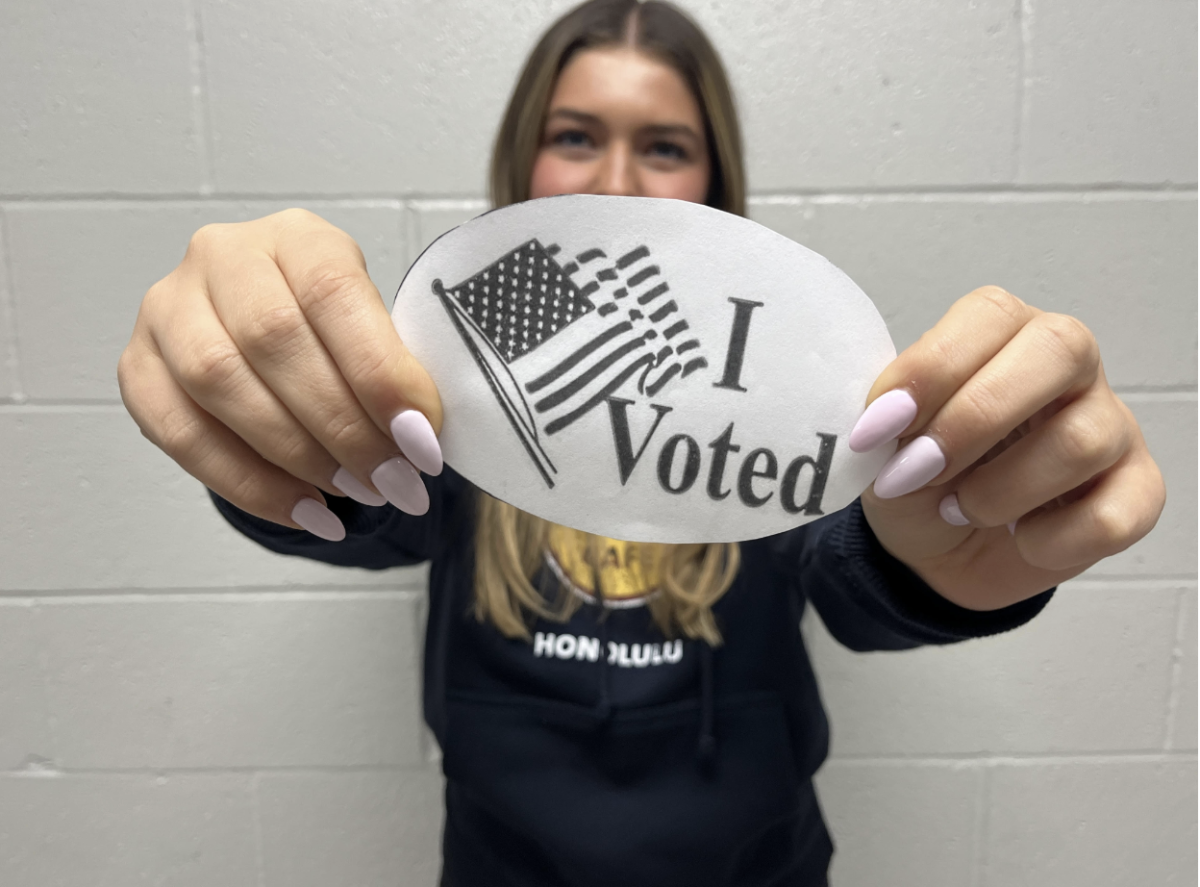It’s happening. The day that you have been anticipating is drawing nearer and nearer, whether you like it or not. November 5th will undoubtedly be a pivotal day in our country’s history, but for a select group of seniors at BSM, this will also be their first time voting—a milestone they will remember for the rest of their lives. Gaining the right to vote is a privilege, and numerous BSM students are ready to take full advantage of their early birthdays to use their voices, advocate for change, and, most importantly, fight for what they want their future to look like. Let’s see how young voters plan to navigate their newfound liberty.
Cole Langevin, a senior at BSM, is ready to put his beliefs into action. As an avid follower of politics, Langevin is one of many BSM students who has expressed excitement about his new role in the election. Although it’s relatively easy to follow along with politics as a US citizen by staying informed and doing research, actually being able to exercise your right in the election is appealing, intriguing, and honorable. “It’s exciting. I feel it’s an opportunity to really make a change and support what I’ve been believing for so many years,” Langevin said.
However, voting as an 18-year-old can be daunting. With no prior experience, it can be taxing to try and figure out your beliefs on complex issues, some of which high schoolers have never thought about, and match them up with candidates and their policies. Even more so, there seems to be an unspoken stigma around those who simply don’t know a lot about politics and are unsure of who they are voting for. “I’ve never done it before, and it’s kind of scary…I don’t feel pressured, but I feel like there’s definitely stereotypes either way. So I don’t know. I might just not vote,” an anonymous senior said.
Despite some students’ hesitancy, some BSM teachers are aiming to ensure that every 18-year-old feels ready, prepared, and, most importantly, excited to vote. Keith Jones, a social studies teacher, is passionate about incorporating his beliefs on voting participation into his classes. “We do current events every day. So we talk about what’s going on politically, what’s going on historically, [and] how we can make those connections. We also look at the candidates on the local level, state level, and international [level],” Jones said.
Jones also emphasizes a neutral and unbiased approach to providing information to his students. “You teach what the left teaches, the right teaches, [and what] the church teaches. And then the job has been done to inform [students’] conscience, and then they are to make their decision with the information,” Jones said.
Furthermore, there is an increase in students wanting to have civil political discussions. While it is hard to incorporate these conversations into classes that need to follow a strict curriculum, some students are alright with leaning away from that and taking time to discuss real-world issues. “So many people have different opinions, and there is a civil way on sharing your opinions and kind of getting a good political conversation out of it. And I think people are learning how to do that,” Langevin said.
As the election approaches, a majority of new voters at BSM are anticipating their ability to use their voices and stand up for what they believe in. 18-25-year-olds have the lowest voter turnout, though this election will impact their future the most. “Why not be part of the process as much as possible?” Jones said.






































![Teacher Lore: Mr. Hillman [Podcast]](https://bsmknighterrant.org/wp-content/uploads/2025/03/teacherlorelogo-1200x685.png)



